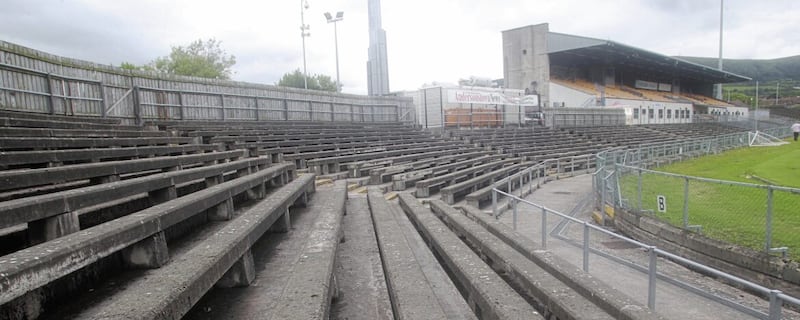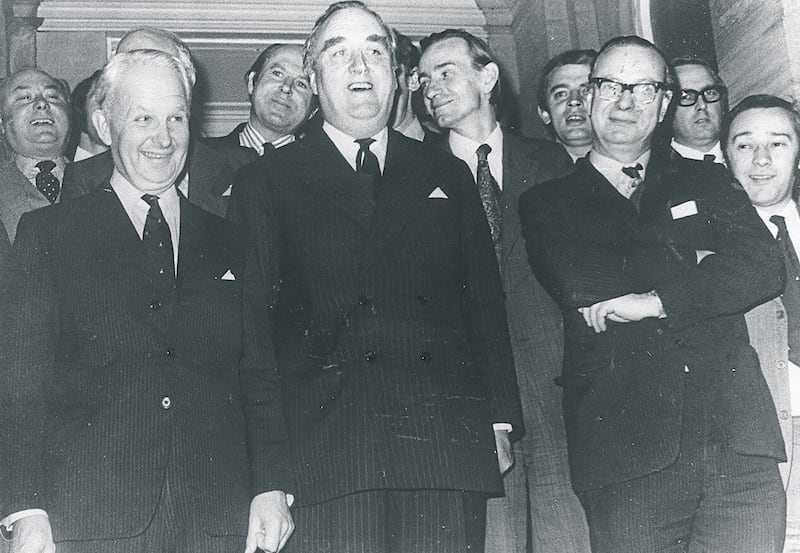September 27 1973
Casement Park, which has been occupied by British troops since August 1 last year, is to be handed back to its owners, Co Antrim GAA Board, by November 1.
The stadium was taken over by the military during Operation Motorman and their action led to stormy protests by GAA spokesmen and public representatives, who pointed out that the forcible occupation of the buildings and grounds removed a very necessary amenity for thousands of people who took part in or supported Gaelic games in the city.
The British Army headquarters in Lisburn has confirmed that when the 2nd Battalion Royal Regiment of Fusiliers leaves the park, they will not be replaced.
Security chiefs are understood to take the view that conditions have become sufficiently quiet to enable them to reduce the military strength in the Andersonstown area.
Unlike Casement Park, parts of the GAA grounds of Crossmaglen Rangers in Armagh remained occupied by the British army from 1971 to the late 1990s.
Read more:
Casement Park refurbishment to start in 2024, IFA boss reveals
Casement Park could host five games in 2028 European Championships, six games in Dublin
Casement Park will cost more but government must honour commitment to build it

Executive: Whitelaw Backing SDLP Call
Swift reaction to an SDLP call for an all-party conference on October 8 to stay together until they reached agreement on the setting up of a Council of Ireland, the phasing out of internment, and the future policing of Northern Ireland and to form an Assembly Executive, came last night from Mr William Whitelaw, the Secretary of State.
A government spokesman said, on his behalf, that if the SDLP were now saying they were prepared to come to the conference table, he would be prepared to arrange such a meeting in consultation with the other parties represented in the Assembly.
Official Unionist Party leader Mr Brian Faulkner said he did not consider it necessary that there should be any delay in having discussions with those parties prepared to accept in full the terms of the Constitution Act and establish an executive under those terms.
But DUP leader the Rev Ian Paisley and Mr John Taylor, former junior Home Affairs Minister in the Stormont Government, rejected outright the invitation for a get-together.
Mr Paisley said he had no intention of serving on any executive with “those who would attempt to destroy this country”. Mr Taylor told me [Political Correspondent, Tom Samways]: “Clearly, there must be members of the SDLP who are so keen to hold offices of government at Stormont that they are prepared to abandon principles which I had formerly associated with that party.”
Although agreement was reached about a power-sharing government in Sunningdale, England in December 1973, it collapsed by May 1974, primarily due to unionist opposition and a loyalist-organised strike.








